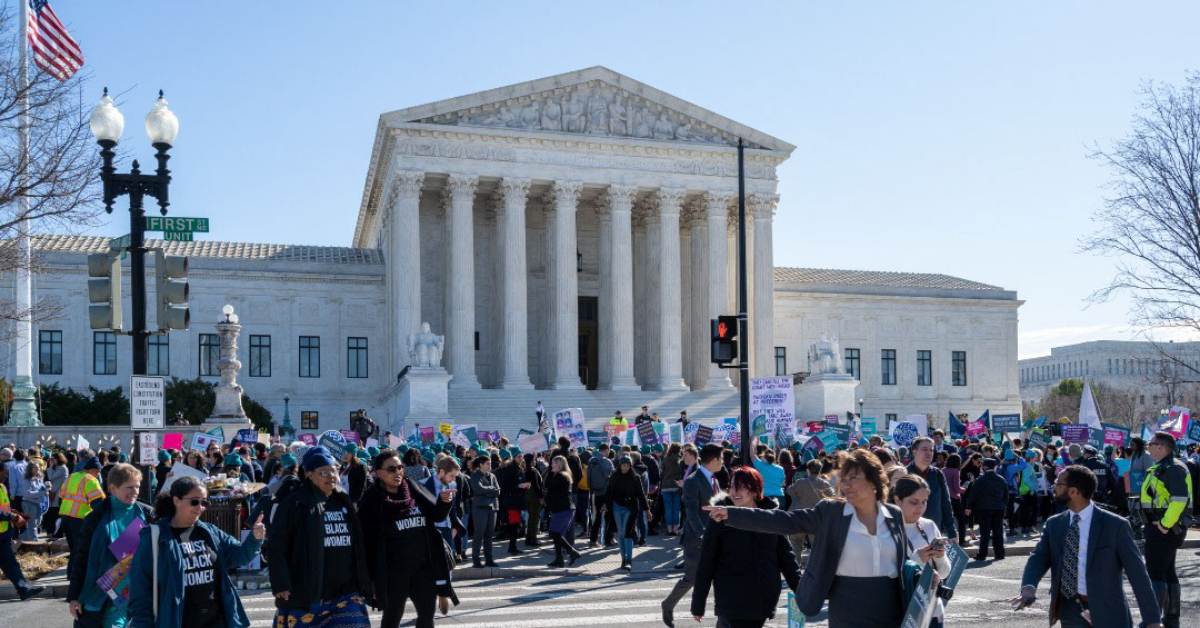Vaccine Mandate Considerations for Union Employers
Employers considering requiring their employees to get vaccinated against COVID-19, whether by policy choice or required by a federal, state, or...
3 min read
 Erin Jacobson JD
:
Aug 22, 2023 11:56:29 AM
Erin Jacobson JD
:
Aug 22, 2023 11:56:29 AM

The National Labor Relations Board (NLRB or the Board) frequently reviews employer work rules in employee handbooks or other policies to determine whether such rules unlawfully infringe on employees' rights to engage in protected concerted activity. Protected concerted activity includes employees talking with each other about wages, benefits, or other working conditions. Other examples of protected activity include circulating a petition asking for better hours, participating in a collective refusal to work in unsafe conditions, and joining with coworkers to talk directly to their employer, a government agency, or the media about workplace problems. All private sector employees have a right to engage in protected concerted activity, even if they are not unionized. Therefore, these NLRB decisions have an equal impact on non-unionized employers, who must be just as careful not to infringe on their employees' exercise of such rights.
During the Obama Administration, the Board tended to take a restrictive view of work rules and found unlawful many rules that broadly prohibited specific employee behavior. For example, the Obama-era Board found that employees had a right to use personal devices to photograph working conditions, to use employer computers and email systems to engage in union organizing activity, and to speak negatively and even disrespectfully toward their employer, management, and sometimes even other employees. However, between 2017 and 2020, the Trump-era Board overruled many of these decisions and opened the door to stricter work rules by employers. In a December 2017 decision in The Boeing Company, the Board determined that many broad work rules imposed by employers were presumed to be lawful.
On August 2, 2023, the Board's pendulum swung widely and decisively back toward more employee-friendly decisions regarding employers' work rules. The Board overruled the Boeing case and replaced it with a decision in the Stericycle case that established a new "reasonable employee" standard for analyzing whether a work rule violates employees' rights.
Under the new Stericycle test, the Board presumes a work rule is unlawful if "an employee who is subject to the rule and economically dependent on the employer, and who also contemplates engaging in protected concerted activity" could reasonably interpret the rule as coercive. The employer may overcome this presumption and enforce the policy if the employer can show that the rule "advances a legitimate and substantial business interest and that the employer is unable to advance that interest with a more narrowly tailored rule."
Unlike the prior Boeing rule, which categorized several sets of work rules as presumptively lawful or unlawful without requiring individualized scrutiny, the Stericycle decision will require the Board to assess work rules on a case-by-case basis. Therefore, the Board will likely issue more decisions in the coming months and years that will determine different types of work rules under this new test, requiring employers to diligently update policies to comply with such decisions.
In the meantime, employers have little guidance on how the NLRB's forthcoming case-by-case reviews will turn out. Until we see further interpretations from the Board, the best advice is to look to case decisions and General Counsel memos that the Board issued before the 2017 Boeing case. Therefore, Archbright has updated relevant Keynotes and sample policies, accessible to members in the mozzo Resource Library, and will continue to update these resources as new case interpretations become available.
First, employers should be cautious when issuing corrective action related to any work rules or standards of conduct that may restrict an employee's ability to engage in protected concerted activity. While we await additional guidance from the NLRB—whether in the form of a memo from the General Counsel or more case law—it is important to proceed carefully. Employers should contact legal counsel with questions and for help assessing the risks of taking corrective action for these types of rule violations.
Second, employers should review existing handbooks and policies for those rules that the Board may now consider overbroad and unlawful. Determine if there is a way to narrow the rule to protect legitimate business interests without risking interference (real or perceived) with employees' rights to engage in protected concerted activity. Employers may need to update the following policies in light of the Stericycle case:

Employers considering requiring their employees to get vaccinated against COVID-19, whether by policy choice or required by a federal, state, or...

After the US Supreme Court’s June 24 landmark decision to overturn Roe v. Wade, employers across the nation were left trying to understand the...

1 min read
A new law was passed by the Washington legislature and signed by Governor Inslee in May 2023 that restricts employers’ ability to conduct...